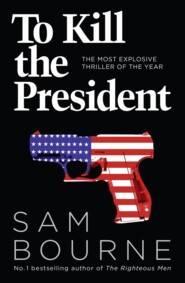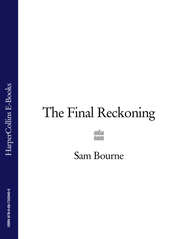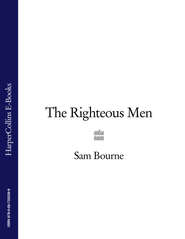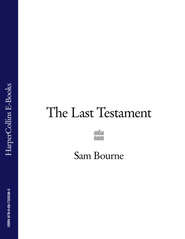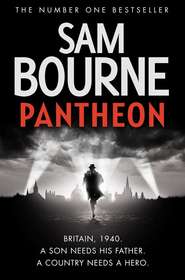По всем вопросам обращайтесь на: info@litportal.ru
(©) 2003-2024.
✖
The Chosen One
Автор
Год написания книги
2019
Настройки чтения
Размер шрифта
Высота строк
Поля
‘S’OK. I play baseball, which is cool.’
‘That is cool.’ Maggie was beaming. Josh Baker was a contender for America’s cutest boy and having first met him nearly two years ago she felt as if she had almost seen him grow up.
That first encounter had come on a summer Saturday in Iowa, at the State Fair in Des Moines. Stephen Baker had been there with his family – Josh, then aged six, kept nagging to ride on the bumper cars – as the candidate tried to endear himself to the ever-discerning, and crucial, people of Iowa. Baker was then the rank outsider in the Democratic field, the little-known governor of Washington State. His name recognition was zero, he had no national experience and carried no regional advantage: historically, Democrats liked governors from the South who might deliver a chunk of votes that would otherwise be hard to reach. Washington State? In a presidential primary, that counted as a disability.
Still, Rob – Maggie’s old pal from her Africa days, who had ended up in the State Department and had just dealt the death-blow to her nascent career – had been insistent. ‘Just meet him,’ he had said. ‘You’ll know right away.’
Maggie had stonewalled, resisting, refusing to be swayed by the barrage of calls, emails and texts that followed. Maggie Costello? Working for a politician? The idea was ridiculous. She had ideals, for God’s sake, and ideals had no place in the snakepit of modern politics. The young Maggie Costello had had nothing but contempt for politicians. She’d seen what they and other power-seekers had done to godforsaken bits of Africa, the Balkans and the Middle East, first as an aid-worker, latterly as a behind-the-scenes diplomat. It sounded corny, but as far as she was concerned there was only one mission that mattered: trying to make the world a better place, especially for those on the sharp end of war, disease and poverty. The way she saw it, politicians tended, at best, to get in the way of that process; at worst to profit by others’ disadvantage.
Besides, she’d argued to Rob, the election was more than a year away; Baker’s candidacy was just a few months old and the Beltway wisdom had already written him off as an also-ran. They suspected he was running as a future vice president, trying to get himself noticed. The only poll she had seen gave him a score of ‘negligible’, too small to measure. And anyway, what did she know about US presidential politics?
‘It doesn’t matter,’ Rob had insisted. ‘You know foreign policy. He’s governor of Nowheresville: the closest he gets to foreign policy is having lunch at the International House of Pancakes. Just go, just meet him and you’ll see what I mean. He’s different: he’s something special.’
So, sighing inwardly, she had gone to the Iowa State Fair and watched Baker mingling with the hog-farmers, eventually crowning a giant pig the winner of the hotly-fought Big Boar Contest. ‘He’s bigger than I am, he’s better looking – why isn’t he running for president?’ Baker had said to delighted cheers. She waited before introducing herself. She wanted to see him in action.
It didn’t take long to see he was a natural. His manner was easy, his interest in people shone through as genuine, not the synthetic sincerity of the blow-dried, bleached-teeth politicians usually deemed presidential material. Unlike most candidates, he knew there was a difference between listening and staying silent while you wait to speak again. He actually listened. And whatever quality it was that had won over her cynical friend, Rob, it seemed to be working on the usually wary folk of Des Moines – people who had grown sceptical of the procession of suitors who invaded their state every four years smiling brightly with their faces aimed towards the television cameras, making promises they never kept. Baker, on the other hand, had the crowd in his thrall: they watched him eagerly, mirroring his expressions, grinning when he grinned, reflecting back the warmth they felt from him. And unlike other candidates, who seemed to have been parachuted into such events from another planet, he genuinely seemed to be enjoying himself, making real human contact with the people around him, rather than using them as props for a photo opportunity.
Finally she stepped up to say hello.
‘So you’re the woman who brought peace to the Holy Land,’ he had said, wiping an oily hand on his apron as he paused from flipping chops on the outdoor grill beside the Iowa Pork Producers’ tent. ‘It’s a pleasure to meet you.’
‘Nearly,’ she had replied. ‘Nearly brought peace.’
‘Well, nearly’s a hell of a lot further than anyone ever got before.’
They snatched moments of conversation as he shook more hands, posed for camera-phone snaps or exchanged banter with a local reporter. He would break off – to admire a life-sized cow made entirely of butter or to have a bumper car ride with Josh – then pick up exactly where they had left off.
Eventually he asked her to hop in the car that would take them to his next event, an evening speech in Cedar Rapids. Kimberley and the kids would be in the back; she could ride with him up front. When she looked puzzled as to how there would be room, he smiled. ‘I have the most crucial job on the “Baker for President” campaign: I’m the driver.’
They talked for the entire two-hour journey, until the three Bakers in the back were fast asleep, the children’s heads resting on their mother’s shoulders. He listened as much as he talked. He wanted to know how she had started, asking her more about the work she had done as a volunteer in Africa, straight after graduation, than about the high-level shuttle diplomacy that had made her name in Jerusalem.
‘You don’t want to know this,’ she had said eventually, with an embarrassed wave of the hand.
‘No, I really do. Here’s why. You know who I’m going to be in this campaign? I’m going to be the hick. “The logger’s son from Aberdeen, Washington”.’
‘But that’s one of your great strengths. You’re the American Dream.’
‘Yeah, yeah. The folks like that. But I’m running against Doctor Anthony Adams, PhD of New York. I’m the boy from the sticks. I’ve got to convince Georgetown and the New York Times and the Council on Foreign Relations – all that crowd – that I’m not too provincial to be President.’
‘I thought you wanted to be the outsider: Mr Smith goes to Washington and all that.’
‘No, Maggie. I want to win.’
Soon he was telling her how, once he’d got a scholarship to Harvard, he’d met people who spent the vacations in Paris or London or jetted off for weekends in the Caribbean. He, meanwhile, had to go back to Aberdeen and work shifts in the lumber yard or at the frozen fish processing plant: his father had emphysema and there was no other way to pay the bills.
‘Eventually I got away. My first trip out of the country. And I went to Africa. Just like you.’
He looked away from the road long enough for them to smile at each other.
‘I was in Congo, Zaire as it was then. Jeez, I saw some terrible things. Just terrible. And it’s still going on, if not there, then somewhere else. It’s like they’re taking turns: Rwanda, then Sierra Leone, then Darfur. The burning villages, the rapes, the children orphaned. Or worse.’ He glanced at her again. ‘I know you’ve seen some real horror yourself, Maggie.’
She nodded.
‘Well, it’s a long time ago now.’ He paused for a long minute until she wondered if she was meant to say something. Then he spoke. ‘I believe I can win this thing, Maggie. And if I do, I want to do something that only an American president can do. I want to dedicate some of the enormous resources of this country to stopping all this killing.’
She frowned.
‘I’m not talking about sending our army to invade places. We tried that already. It didn’t work out so well.’ Now it was her turn to smile. ‘We need to think of other ways to do it. That’s why I need you.’ He let that sentence hang in the air while she stared at him in disbelief.
‘Something tells me that you never forgot what you saw when you were twenty-one, Maggie. You never forgot it. It’s what makes you work so hard, even now, all these years later. Am I right?’
Maggie looked out of the car window, picturing the position papers, conferences and endless meetings of which her life now consisted. Each day she felt she got further away from that angry twenty-one-year-old woman she had once been. But he was right. What fuelled her still was the fury she had felt then about all the violence and injustice – all the sorrow – in the world and the determination to do something about it. These days, her ideals seemed to have slipped so far into the distance, it was a struggle to glimpse them. But Stephen Baker had just reminded her that they were still there. She turned back to him and nodded.
‘And that’s how I am, too. I never forgot what I saw out there. And about eighteen months from now, I’m going to have a chance to do something about it. Something big.’ He shifted the car down a gear. ‘Will you be with me, Maggie Costello?’
Now, nearly two years later, the President was reaching for a red plastic lunch box with one hand and opening the fridge with the other. ‘So what’s it to be, junior? Apple or pear?’
‘Can’t I have candy?’
‘No, young man, you cannot. Apple or pear?’
‘Apple.’
Stephen Baker wheeled around, an expression of deep seriousness on his face. ‘That’s not so you can use it to play baseball, is it?’
The boy smiled. ‘No, Dad.’
‘Josh.’
‘I promise.’
The President put the fruit into the box, clipped the top shut then placed it in his boy’s hand. Then he bent to kiss his son on the top of his head. Maggie noticed that he shut his eyes as he did it, as if in a moment of grateful prayer. Or just to savour the smell of Josh’s hair.
‘OK, young man, scram.’
Just then, Kimberley Baker came in, clutching a bag bulging with gym gear. Blonde and pretty as a peach in her college days, she was now usually described as ‘rounded’ or, by the less kind, ‘plump’. Magazines had obsessed about her weight when her husband first announced, the celebrity press zooming in on cellulite patches or a close-up of her rear-end in an ill-advised trouser-suit. She had gone on daytime TV, told how she had gained weight when Katie was born and how she had tried multiple diets – ‘including all the nutty ones!’ – to take the pounds off, but failed each time. Now, she said, she was comfortable with who she was and had decided to devote her energies to something more worthwhile than her waist size. The women in the audience had stood and cheered their approval, the host had hugged her and, within a day or two, she was declared a role model for female empowerment.
No less important, the political cognoscenti had decided that Kimberley Baker was an enormous asset to her husband. Female voters, in particular, had long been sceptical of Barbie doll, Stepford political wives; they liked what it said about Stephen Baker that his wife was a real, rather than artificially flawless, woman. That she was from Georgia, thereby connecting him with the vote-rich South, was an added bonus.
The Bakers could not say they were used to life in the White House, even if Tara MacDonald had already briefed People magazine that they were loving it. But Kimberley was certainly making an effort, chiefly for the children’s sake. She had been worried about it from the start, anxious about an eight-year-old boy and a thirteen-year-old girl entering the most vulnerable time in their young lives in front of the gaze of the entire world. She remembered her own adolescence as one long stretch of blushing embarrassment: the notion of enduring that with a battery of cameras permanently in your face, scrutinizing your clothes and your hair and relaying those images around the globe, seemed truly unbearable. During the campaign, Stephen Baker always got a laugh when he joked that the only two people who truly wanted him to lose the election were his opponent and his wife.
Now Kimberley was fussing over both Josh and her shy, gauche, pretty teenage daughter, bundling them out of the door and into the hands of a casually-dressed, twenty-something woman who looked like an au pair. In fact, she was Zoe Galfano, one of a Secret Service detail whose sole duty was the protection of the Baker children.
‘Maggie, something to drink? Coffee, hot tea, juice?’
‘No thanks, Mr President. I’m fine.’ The phrase still snagged in her throat on its way out, but there was no getting around it. Everyone addressed him the same way, including his closest advisors and oldest friends, at least inside the White House. He had realized early on in the job that if he asked some people to call him by his first name, then those to whom he had not made the same offer would feel offended. He’d end up telling everyone, ‘Call me Stephen,’ and that was too casual. Better to keep it formal – and consistent.
He checked his watch. ‘I want to talk about Africa. I saw your paper. The killing’s starting up again in Sudan; there’s hundreds of thousands at risk in Darfur. I want you to work up an option.’






